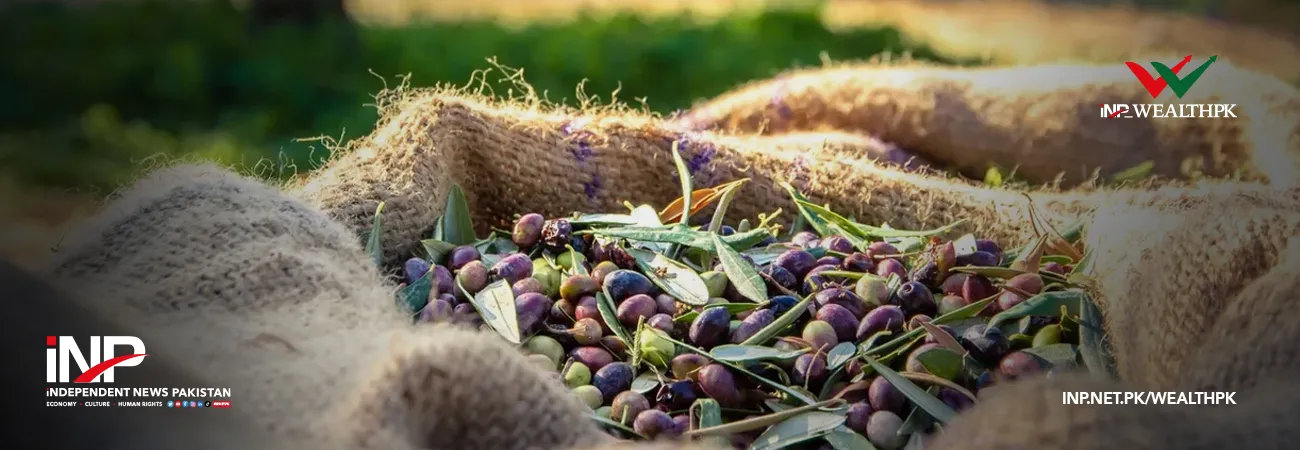INP-WealthPk
Arooj Zulfiqar
Pakistan's olive farming sector, touted as a promising avenue for agricultural growth and economic prosperity, continues to face significant challenges due to insufficient infrastructure and a strain on local capacity. "One of the major challenges confronting Pakistan's olive industry is the lack of modern infrastructure necessary for efficient olive cultivation, processing and marketing. This includes inadequate irrigation systems, limited access to quality olive seedlings, and outdated processing facilities. As a result, farmers struggle to achieve optimal yields and maintain the quality standards required for domestic consumption and international export," Azeem Tariq, a senior scientific officer at National Agricultural Research Centre, noted. "Pakistan's olive farming faces challenges in oil extraction facilities and local capacity, impacting the quality and sustainability of the sector. Olives require prompt milling post-harvest to ensure superior extra virgin quality, ideally within 24 hours. However, the current landscape in Pakistan reveals a stark reality of limited and costly oil extraction facilities, mostly established for research purposes by the government.
The existing oil extraction mills and equipment, primarily imported, are expensive to operate and maintain. This cost burden, coupled with poor rural infrastructure and the scattered nature of olive farms, results in subpar virgin oil extraction," he explained. Furthermore, Tariq said the shortage of indigenous suppliers, who can produce olive oil extraction machines, worsens the situation. "This dependence on imported equipment not only increases financial pressure but also makes it difficult to replicate and sustain Pakistan's olive farming programme in the long run. In addition, the lack of domestically produced oil storage containers emphasises the infrastructure challenges that hinder the growth of the industry," he said. "These challenges not only affect the quality of olive oil produced but also limit the scalability and profitability of olive farming initiatives across the country. Without adequate infrastructure and local capacity, Pakistan's olive sector struggles to realise its full potential as a lucrative agricultural venture." He said to address the challenges faced by Pakistan's olive farming industry, a comprehensive approach was required.
"This includes investing in decentralised oil extraction facilities, supporting local fabrication of equipment, and developing rural infrastructure to enable efficient transportation and storage. Collaborative efforts between government, private sector stakeholders, and international partners are essential for overcoming these obstacles and unleashing the full potential of Pakistan's olive farming industry." Tariq said NARC had introduced eight different varieties of olives that were being cultivated. He added the olive centre at Barani Agricultural Research Institute (BARI) had introduced about 25 varieties. "If we keep working in this manner, there will be positive developments in the olive production industry within the next five years," he said. "It will enable us to meet almost 40 to 60% of our local demand in about five to seven years, which will help lower our reliance on imports. Pakistan has the potential to be a world leader in olive production," Tariq noted.
Credit: INP-WealthPk













